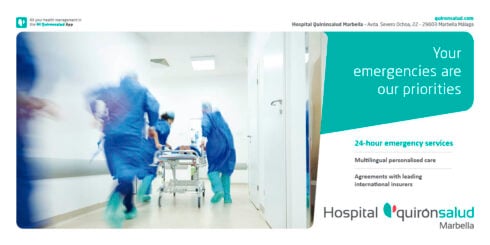THE Junta has admitted that up to 2,000 women in Andalucia may have experienced delays in breast cancer diagnoses following a series of failures in the public screening programme.
In the wake of a wave of complaints from women personally affected, regional health officials have finally acknowledged that flaws in communication and protocol left many unaware they required follow-up tests after ‘doubtful’ or ‘inconclusive’ mammogram results.
Having heard no news, some women simply assumed their screenings came back negative and did not seek further tests.
Breast cancer screening in Andalucia normally involves multiple radiologists – but existing protocol meant inconclusive results, which should normally lead to further imaging or monitoring at regular intervals, were simply ignored.
The fiasco has triggered a political storm, with calls growing for the resignation of regional health minister Rocio Hernandez over the failures.
Angela Claverol, president of the Association of Women with Breast Cancer (Amama), has publicly criticised Hernandez after a meeting between the two reportedly ended in tears, with Claverol saying she felt ‘disregarded’.
She added: “I told her personally that she accused me of having a political agenda, which is not true. I never ask the women who call Amama what party they support. We just want this to be fixed.”

In response, the regional health service (SAS) has vowed to review all mammogram results from the past three years and contact all affected women to clarify their medical status.
Patients impacted by the errors will benefit from a ‘preferential circuit’ of treatment, the president of the Junta, Juanma Moreno, said.
Moreno sought to defend the region’s health system, saying: “I ask citizens not to discredit the Andalucian health system. It can make mistakes, but it is a system that saves lives every day.”
Authorities estimate that about 2% of the cases may have led to breast cancer diagnosis – while Amama has said more than 50 women may have been negatively impacted by failures in the early detection programme, many of whom instead discovered they had cancer through private consultations.
According to Amama, a delay in diagnosis ‘can mean the difference between early, treatable cancer and advanced disease’.
Claverol added: “It is terrible that 2,000 women now live with that fear. [The Junta] will review mammograms from the past three years to look for possible errors and will notify all the women involved. They have acknowledged a failure in communication in the cancer screening process.”
Breast cancer is the most common cancer in women in Spain, and accounts for over 15% of all female cancer deaths.
Last year, over 35,000 Spanish women were diagnosed with breast cancer while an estimated 6,513 died.
Click here to read more Spain News from The Olive Press.








